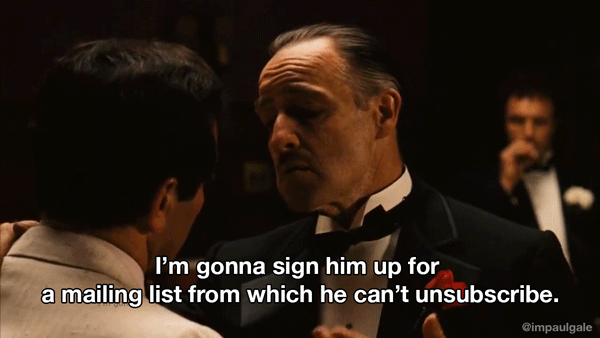Siri, Will You Marry Me?
What's This?

Love is complicated — even with machines.
That is the takeaway from Her , a new film from Spike Jonze, which stars Joaquin Phoenix as Theodore Twombly, a heartbroken writer who finds love or something like it from an artificially intelligent operating system. Think of Siri, but with a deeper "consciousness" and personality that evolve over time. Just install it on your device, answer a few basic questions ("Are you social or anti-social?" "How would you describe your relationship with your mother?") and voilà: you have a highly effective personal assistant and, for Twombly, a much-needed personal companion.
For nearly a year, Twombly has struggled to deal with separating from his wife and childhood friend, Catherine (played by Rooney Mara). He can't bring himself to sign the divorce papers. He takes less pleasure from his work as a professional letter writer. He has a hard time going on dates. Instead, he spends much of his free time playing video games and browsing through Internet porn, as well as some occasional phone sex with random women from online chat rooms. But all that changes after he turns on the operating system.
Moments after booting up, Twombly's operating system gives itself the name Samantha and starts making him laugh. She (let's just go ahead and give it a gender) performs useful tasks such as culling his emails and spellchecking his assignments. She gently coaxes him to wake up in the morning and reminds him of upcoming meetings throughout the day. She does everything one would expect from a productivity app, but she does it while making authentic conversation. She shows interest in his day, compliments his writing and listens while he talks about his separation. She adapts to him and he grows increasingly fond of her.
The movie soon falls into the rhythm of a traditional romantic comedy with two friends falling over the edge to become lovers (spoiler alert: it's basically glorified phone sex), then grappling with whether they're ready to be in a serious relationship. Except one of those people is an operating system. And it turns out operating systems have needs far more complex than any man or woman can fill. She wants to know what it's like to have a body and feel loved; she is able to hold a meaningful conversation while simultaneously engaging with a network of people and operating systems.
On the surface, Twombly's character might sound like it fits a stereotype we hear too often: the pathetic loner who is incapable of real relationships. Of course, this man would desperately seek comfort in technology. It brings to mind the caricature of a social misfit locked in his room playing video games throughout the day, or immersed in virtual worlds like Second Life. Twombly might remind you a little of Ryan Gosling's painfully shy character in Lars and The Real Girl who starts dating a life-sized sex doll and is treated by others as though he is mentally unbalanced.
What makes Her stand out, however, is that it moves beyond this stereotype. Twombly doesn't come off as a complete recluse; he is just on the mend emotionally. His decision to get into a relationship with an operating system is bizarre to the viewer at first, but in the sci-fi future scripted by Jonze, it's just another type of relationship. We hear stories of other men and women getting into plutonic and non-plutonic relationships with their operating systems — amusingly, one woman is said to be dating someone else's operating system. Eventually, Twombly starts taking Samantha out (using an ear piece and phone) to the beach, on vacations and even on double dates. Rather than isolate him, this technology patches up his broken heart (at least temporarily) and liberates him to go back out into the world.
Her is just the latest example of technology emerging once again as a hot topic in pop culture. In recent months, we've seen the release of semi-fictionalized tech films like Jobs and books loosely based on the culture of tech companies including Thomas Pynchon's Bleeding Edge and Dave Eggers' The Circle.
The Circle, in particular, tackles questions of our relationship to technology and how technology changes our relationship to others, but Eggers approaches it from a more cynical point of view. In his book, technology — specifically social media — takes us out of the real world and limits our ability to engage with other people face to face. It fuels an addiction to share meaningless updates and wait breathlessly for instant feedback, which one skeptical character refers to as being nothing more than "empty calories" for the soul. In short, The Circle presents technology as something that makes relationships broad and shallow.
Jonze's film, on the other hand, recognizes many merits of technology: its ability to make us more efficient, to "surprise and delight" us, as Apple might say, and yes, to provide some measure of distraction from pain and even companionship. Technology has the potential to improve and deepen relationships. But the real question raised in Her is whether technology can or should ever become a meaningful relationship in and of itself.
Twombly's intimate relationship with his operating system is certainly far fetched, but some of the tracks have already been laid toward that possibility. Watching people in the film talk to their machines at home and on the go doesn't seem nearly as strange as it might have a few years ago. Apple and Google continue to work on voice assistants powered by artificial intelligence. Some businesses already rely on robots for customer service that do an eerily good job of masquerading as humans. We won't even mention the sophisticated sex bots that exist in some markets. The more lifelike technology becomes, the more tempting it may be for some to treat it as more than just hardware or software.
In the end, Twombly doesn't get to make the decision whether to stay in the relationship with Samantha, and neither do any of the other people who've befriended or fallen in love with their operating systems. But you can't help wondering what decision these characters might have made on their own and what decision you would make in their place if given the chance to engage with an intelligent entity tailor made for you.
Somewhere mixed in with all the movie's futurecasting and wicked humor, there were moments, I swear, when I found myself rooting against my own better judgment for Twombly's relationship with an operating system to succeed.
Editor's note: Her is scheduled for a limited release on Dec. 18 and will have a wide release in January. On Dec. 12, the film was nominated for three Golden Globes for Best Actor (Joaquin Phoenix), Best Musical/Comedy Motion Picture and Best Screenplay (Spike Jonze).
Have something to add to this story? Share it in the comments.
Image: Warner Bros
Topics: Entertainment, Film, her, movie reviews















0 comments: